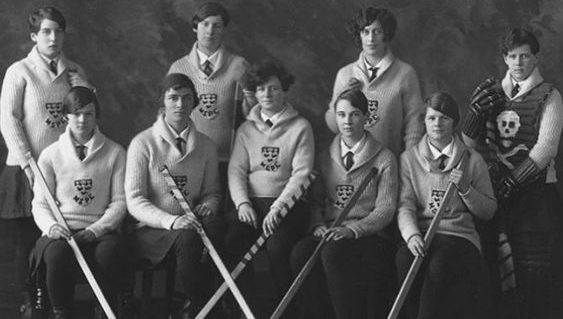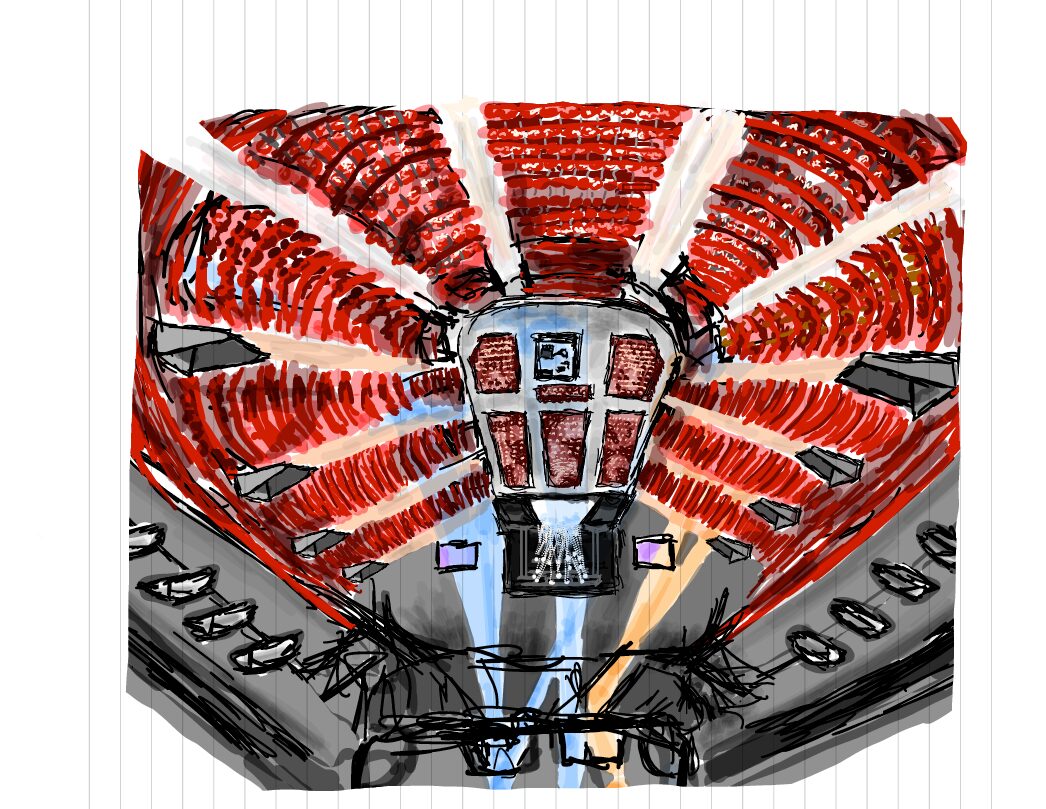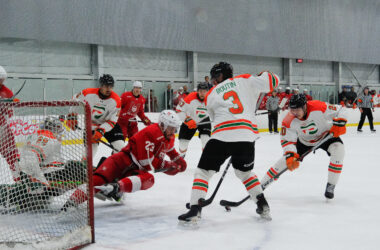McGill men’s hockey has played a crucial part in developing the modern version of the sport. However, women’s hockey has made its mark as well, despite having a later start.
Women started playing hockey at McGill in 1896, but with a slew of restrictions. They were required to wear skirts while they played and were given very little ice time—and their games did not allow male spectators, except for referees and rink employees that would guard the doors against any prospective onlookers.
Organized play would not take off until 20 years later, when the McGill women’s hockey team participated in the first Women’s Provincial Ontario Championship in 1914. In 1920, Lady Meredith of Montreal donated the Lady Meredith Cup to the Quebec Ladies’ Hockey Association. This cup is said to be the first women’s ice hockey trophy in Canada.
From 1921 to 1933, McGill was part of the first university-level women’s hockey league. In 1921, they played against the University of Toronto in the first-ever women’s university championship. The Women Interuniversity Athletics Union (WIAU) league, founded in 1923, would run for 50 years; however, McGill’s teams would never become champions.
In the 1960s, McGill women’s hockey made a comeback when David Kerr, a McGill men’s hockey player, helped restore the women’s team. It was at McGill that he met his wife Sheryl, a first-year player at the time. Together, in 2007, the Kerrs would make the largest donation ever made towards a Canadian university female athletic program. The $1 million donation helped trainers become full-time employees and allowed the team to hire scouts to recruit players from around Quebec to join McGill’s team.
The Kerrs made another, even larger, donation of $3.5 million in 2018 towards the creation of a Women in Sports initiative at McGill, helping the women’s hockey program hire their current interim head coach, Alyssa Cecere.
In 1976, the women’s team became known as the Martlets. The name referred to the coat of arms in the university logo, which has three birds, originally part of James McGill’s family crest. The symbol was also used by the McGill Martlet Foundation, a program focussed on raising money for and providing aid to McGill student athletes.
In 1985, the Martlets won the Quebec Championships, but over the next 13 years they would only manage to make the qualifying rounds once. Things began to turn around for the Martlets after the arrival of goaltender Kim St-Pierre in the 1998 season. Over the next four years, she would help the Martlets qualify for the Canadian Interuniversity Sport (CIS) women’s ice hockey championship playoffs.
In the 21 years since the start of the USports championship, the Martlets have had four wins in 10 appearances, second only to the Alberta Pandas, with eight wins in 10 appearances. Over the past two decades, the McGill Martlets have become a dominant force in women’s hockey at the university level.
With the creation of the National Women’s Hockey League (NWHL) and the Montreal-based team, Les Canadiennes, the talent of the Martlets has become evident: Eight of the 21 women rostered for Les Canadiennes are former McGill Martlets. The team’s general manager, Meg Hewings, explained the Martlet’s significance in an interview with the McGill Alumni Association.
“Women’s hockey is growing at an exponential rate and McGill has paved the way for that growth,” said Hewings. “McGill’s varsity hockey program has a long and rich history [….] Many of our players came out of the program, they know each other well and play well together, and they’ve brought a lot of terrific chemistry to our team.”
Multiple Martlets have also become Olympic champions with the Canadian women’s hockey team, which won four of the last five Olympic gold medals in the sport.
Although the history of the McGill men’s program may be more familiar to some, the story of the Martlets is just as significant and deserves the same recognition as the men’s.








